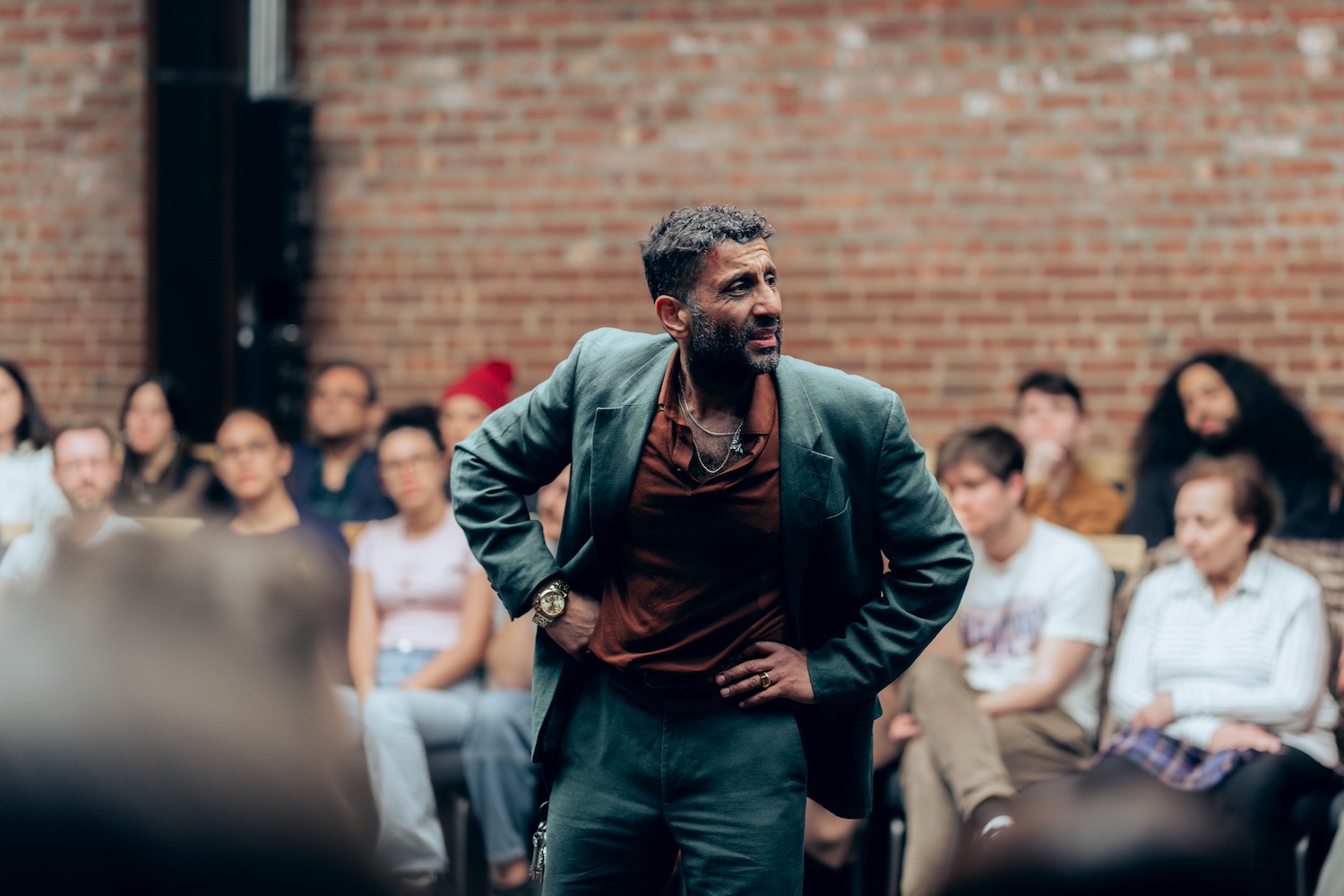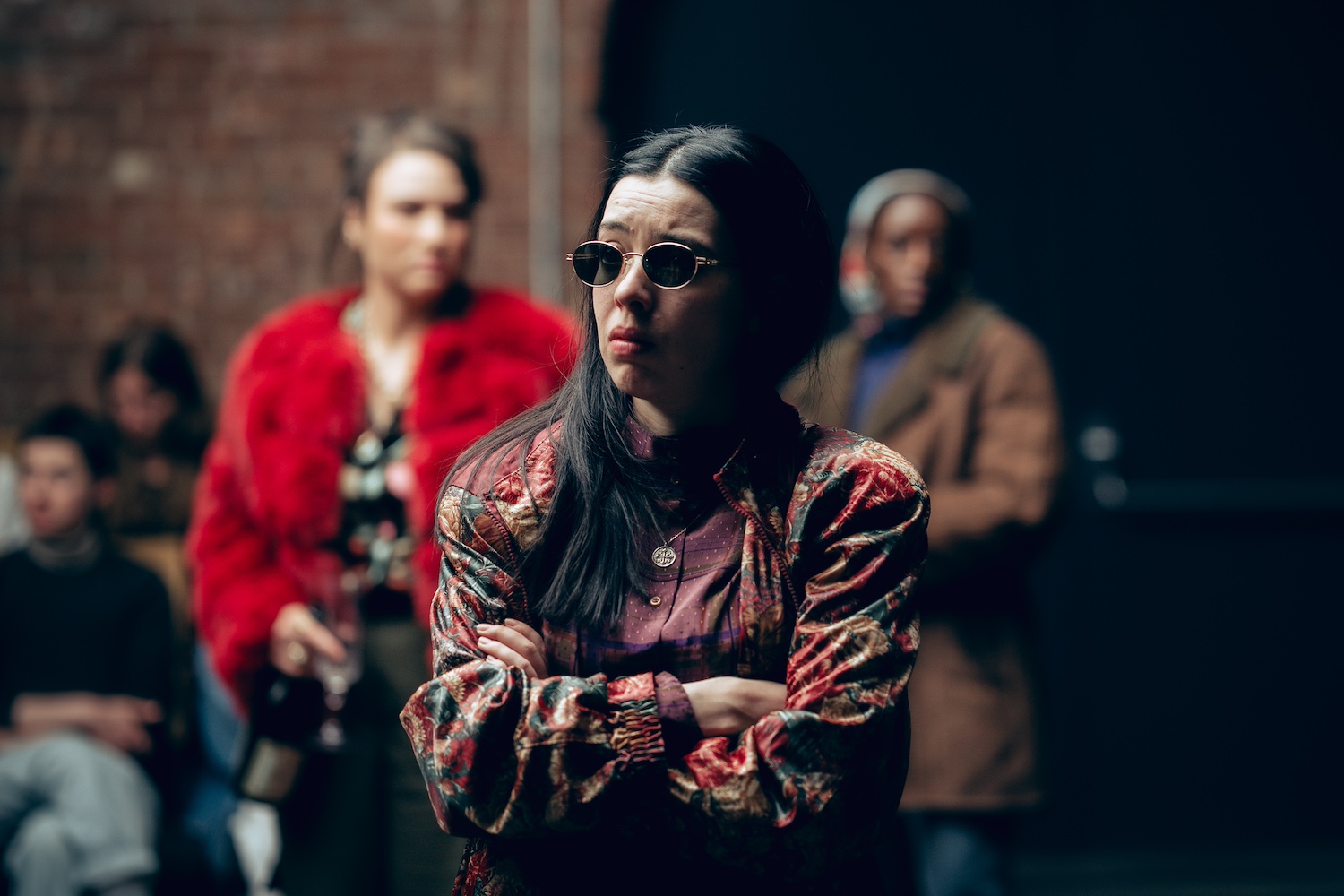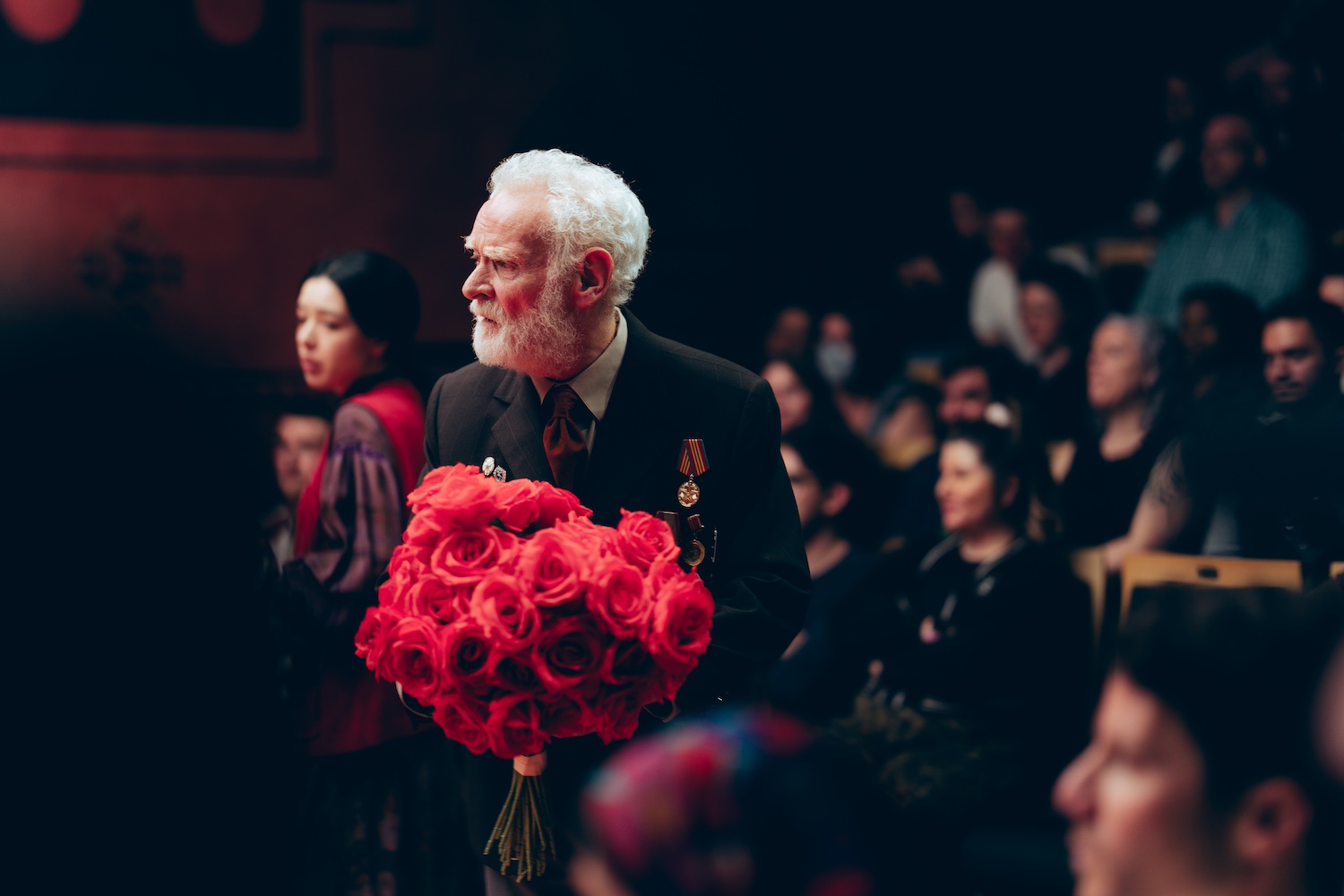****/***** (four stars out of five)
One of the unexpected delights of the last several New York theater seasons has been the sudden abundance of Chekhov plays. Many of these, like this year’s Vanya, starring Andrew Scott (who, unconventionally, plays all eight characters), and The Cherry Orchard—currently playing at St. Ann’s Warehouse in Brooklyn—are cleverly constructed and perfectly performed imports from the UK, which seems, of late, to have a corner on respectable, innovative and intelligent takes on classical theater that don’t pander to a facile pop culture mentality (like the recent spectacular failures of Shakespearean ventures on Broadway).

This newly conceived and adapted version of The Cherry Orchard, by Benedict Andrews (who also directs)—which has come to St. Ann’s after last year’s critically acclaimed run at Donmar Warehouse in London—is a modern, somewhat interactive, minimalist interpretation that reminds us why Chekhov is so great. The universality of the play’s examination of the intersection of social change and familial chaos timelessly maintains the story’s relevance. It’s the saga of an aristocratic Russian family being forced to sell off its estate—which includes a lush, celebrated cherry orchard—because they’re bankrupt due to their vulnerability to change and unwillingness to take responsibility for just about anything in their lives.
Had Ranevskaya (played by UK film and TV star Nina Hoss) not left for Paris—where for years she remained buried in grief (and drowned in booze) over the accidental death of her young son—and not neglected the estate, could the property have avoided foreclosure? Unfortunately, her naivete, as a member of a protected and privileged class, has prevented her from understanding the very basics of modern economics. Had she and her siblings accepted the offer of assistance from newly wealthy/former peasant Lopakhin (Adeel Akhtar, another star of UK film and TV) when he generously offered to save at least a portion of the estate, the sad and pathetic tragic ending could have been avoided. Essentially, it’s a case of the privileged class being unwilling to swallow their pride and adapt to already occurring socio-economic changes. Despite Chekhov’s insistence on the comic elements of the play (and they flourish in this often raucous, fun production), it really is, at heart, a tragedy. All of the family’s sadness and loss is, ultimately, avoidable.

Likely influenced by the Maly Drama Theatre of St. Petersburg, Russia’s production directed by Lev Dodin (which ran briefly at BAM in 2016), Andrews has cleverly reinforced the relatability of late 19th-century, pre-Revolution Russian by having his characters sit on the brightly lit, nearly sparse stage—with large panels of Southwestern-style rugs laid over the building’s concrete floor and brick walls—with front row audience members, many of whom are used as unwitting stand-ins for absent characters (such as a wealthy great aunt) or, in one instance, a bookcase (played the night I attended by a very enthusiastic young theater student who was a tad over-animated for a piece of furniture). Set designer Magda Willi has creatively used the entire theater as a stand-in for the manor, with characters occasionally sprinting up steps and running behind and through rows of seats, shouting at the others below. In fact, in a device that has become rather fashionable of late (as in the recent Broadway productions of A Doll’s House and Sunset Boulevard), the characters leave the building entirely, walking right out into the streets of New York.

Ultimately, it’s the ensemble that gives this production its zing. Hoss and Akhtar inhabit their complicated, conflicted characters perfectly, nicely helped along by Merle Hensel’s attitude-defining costumes (right down to the squeaky-shoed “walking catastrophe” Yepikhodov, hilariously played by Éanna Hardwicke). Hoss’s Ranevskaya is elegant and billowy in long maroon pants and a floral blouse, simultaneously capturing both her elevated social status and her lost, aloof personality. And Akhtar captures the nouveau riche, but well-meaning (and misunderstood) Lopakhin, sporting ostentatious gold-medallions and speaking with a working-class, East-End accent peppered (courtesy of Andrews’ adaptation) with foul language that adds to the hilarity of even tense moments. The inappropriateness of his potential betrothal to the oddly religious Varya (Marli Siu) has never been more clear. Other standout performances include Karl Johnson as the doddering, been-there-forever servant, Firs; Michael Gould’s snooker-obsessed Gaev, Ranevskaya’s useless brother; and the very entertaining David Ganly as the optimistic, party-monster neighbor, Pishchik.
There are many reasons to see a production of a masterpiece like The Cherry Orchard, but the relatability and immediacy of this outstanding Donmar production doubles down on the play’s importance. This is one to see. But if you can’t, fret not, for the Chekhov keeps coming . . . hopefully for many more seasons to come.
The Cherry Orchard. Through April 27 at St. Ann’s Warehouse (DUMBO, Brooklyn)












